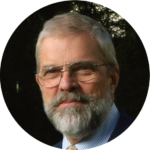OF Discussion Board n°23 – 23 December 2021
 Question asked : “As we are approaching the end of 2021, we invite you to look back at these almost 12 months and draw the attention to what you consider as the most significant weak signal, event, decision or new trend for the economic and financial future, whether in your region or globally.“
Question asked : “As we are approaching the end of 2021, we invite you to look back at these almost 12 months and draw the attention to what you consider as the most significant weak signal, event, decision or new trend for the economic and financial future, whether in your region or globally.“
Thanks for those of our contributors who ventured to react to the this question posed in this Discussion Board.
Editorial – Standing up to new challenges
by Virgile Perret & Paul H. Dembinski
|
2021 has been a challenging year, with the world enduring another 12 months dominated by the pandemic. The spread of the virus underscored the need for companies and governments to be ready for low-probability events, including weak signals that may become forces of disruptions. Here are four trends that could bring dramatic change in 2022.
As the global economy recovers from the pandemic, many policymakers are concerned about the recent rise of inflation, particularly visible in the USA and Germany. As stressed by Etienne Perrot, “Central banks initially refused to see this as the main danger, analysing the phenomenon as a temporary price increase.” According to Valerio Bruno, however, “the new trend that will have profound and complex effects in 2022 will be the barely controllable rise in inflation”, which “could represent a point of no return for global inequality, in terms of resources and opportunities.”
Another key challenge lies in the combination of two simultaneous trends: on the one hand, catastrophic events related to climate change intensifying pressure for international decarbonisation; on the other hand, an increase in energy costs and inflationary pressures. As Domingo Sugranyes explains, this cocktail may result in “social upheaval against necessary changes in consumption”, unless policymakers adopt a more “resilient economic model” and promote “a more innovative and socially based dialogue”, as may be the case in the EU according to Christos Tsironis.
The Great Lockdown has led to the implementation of protectionist policies, such as cuts in foreign direct investment, import and export restrictions, the interruption of the global supply chains and the threat to food supplies. Andrew Cornford explains, this has revived an old debate about the benefits and costs of free trade, even more since “several developed countries’ deindustrialisation has been attributed to the prioritization of free trade over policies more supportive of national production and employment”.
Finally, according to Edward Dommen, the anti-vaccination movement may be “the most vocal expression of the neoliberal individualism epitomized by Ms. Thatcher’s “There is no such thing as society”. It is true that the last 12 months have questioned “our earlier assumptions about what it means to live together and how we can imagine togetherness in local and global terms” (Christos Tsironis). This is a collective challenge that only social dialogue and solidarity may overcome. At least this is what we hope for the year 2022!
|
  |

| “… the beginning of inflation … ”
Driven by the creation of money by central banks, the economic recovery has caused the beginning of inflation, particularly visible in the USA and Germany. Central banks initially refused to see this as the main danger, analysing the phenomenon as a “temporary price increase”. By restricting the propensity to spend, the fifth wave of the pandemic will perhaps prove them right. In France itself, the price-wage dialectic has begun. In this country, the most significant event in 2021 was the spectacular return to a nuclear-based energy policy. This policy goes hand in hand with the will to re-industrialise, which in any cases will take time.
Etienne Perrot
Jesuit, Dr. Economics sciences, editorial board of the magazine Choisir (Geneva), editorial adviser of the journal Études (Paris)
|
 |
| “… lack a clearly defined European policy about immigration …”
Two urgent and unresolved issues are especially difficult, where politicians fear losing votes when addressing them. First, we lack a clearly defined European policy about immigration, despite intense demographic and social pressure from Africa and the Middle East, and close to 2000 persons dying every year in the Mediterranean; but any attempt of rational, let alone generous solutions faces populist assault, while improvised openings risk failing due to lack of organised follow-up. Second, catastrophic climate-linked events are increasing pressure for international decarbonisation, but a simultaneous increase in energy costs and inflationary pressures indicate the possibility of social upheaval against necessary changes in consumption. One can’t be too optimistic. Will leadership rise to the challenge? Happy Christmas and New Year!
Domingo Sugranyes
Director of a seminar on ethics and technology at Pablo VI Foundation, past Executive Vice-Chairman of MAPFRE international insurance group
|
 |
| “… the framework underpinning global trade policy … ”
Since the Global Financial Crisis and now Covid 19 there has been extensive questioning of not only policies adopted but also the conceptual frameworks which underpin them. Perhaps especially interesting here are fundamental reservations aimed at the framework underpinning global trade policy. This dates from the end of WW2 and the adoption of free trade as the framework’s central tenet. The framework originally enjoyed its heyday in a long period preceding WW1 during most of which UK policy dominated thinking about global trade governance. Postwar questioning of this framework initially concerned mostly developing countries owing to its remoteness from problems which they faced. Since the turn of the millennium, several developed countries’ deindustrialisation has been attributed to the prioritization of free trade over policies more supportive of national production and employment. Questioning of the prioritization has accompanied fundamental re-examination of long accepted concepts concerning the benefits and costs of trade.
Andrew Cornford
Counsellor, Observatoire de la Finance; past staff member of UNCTAD, with special responsibility for financial regulation and international trade in financial services
|
 |
| “… the online world of contactless commerce …”
Coronavirus posed an imminent restructuring of the global economic order. While no one can say how long the crisis will last, in this unprecedented new reality, we witnessed a dramatic restructuring of the economic and social order in which business and society have traditionally operated. And in the same year, we have seen the beginning of discussion and debate about what the next normal could entail and how sharply its contours will diverge from those that previously shaped our lives. Evidently, the online world of contactless commerce could be sustained in ways that reshape consumer behaviour forever. Thus, the size and speed of the coronavirus disruption hints at big changes ahead.
Archana Sinha
Head, Department of Women’s Studies, Indian Social Institute, New Delhi, India
|
 |
| “… the anti-vaccination movement … ”
The anti-vaccination movement is currently the most vocal expression of the neoliberal individualism epitomized by Mrs. Thatcher’s “There is no such thing as society”. Let the epidemic rather remind us of the injunction of Calvin, that Geneva leftist: “If we can do anything to preserve the life of our neighbour, we must faithfully work for it both by procuring the things that pertain to it and by obviating anything that is contrary to it.” Best wishes to all for a healthy new year !
Edouard Dommen
Specialist in economic ethics, former university professor and researcher in UNCTAD and president of Geneva’s Ecumenical Workshop in Theology.
|
 |
| “… the barely controllable rise in inflation … ”
The year 2021 will surely be remembered for a number of key events, including the record-breaking production of vaccines to try to stop the Covid-19 pandemic and its many variants. However, I believe that the new trend that will have profound and complex effects in 2022 will be the barely controllable rise in inflation. Paul Krugman has recently written on the pages of The New York Times “Now we’re experiencing another episode, the highest inflation in almost 40 years”. As many countries have never really recovered from the great economic and financial crisis of 2008, a years-long pandemic and subsequent spike in inflation could represent a point of no return for global inequality, in terms of resources and opportunities.
Valerio Bruno
Researcher in politics and Senior Research Fellow at the Centre for Analysis of the Radical Right (CARR)
|
 |
| “… rethink the once inflexible rules of the Stability and Growth Pact … ”
At the end of 2021 the world situation challenges us all to meet realism beyond optimism and pessimism. Three main issues above all, i.e. the economic downturn, the climate change warnings and the world digital division (UNDP) questioned during these 12 months our earlier assumptions about what it means to live together and how we can imagine togetherness in local and global terms. The apparent will of EU member-states to rethink the once inflexible rules of the Stability and Growth Pact (SGP) might be a sign of a change. In this perspective we might hope a more innovative and socially based dialogue on the fiscal rules and the public investments that could lead EU from Recovery to a (more) Resilient economic model. Could economy flourish in devitalized societies? Even posing such a question could light new paths.
Christos Tsironis
Assoc. Prof. of Social Theory at the Aristotle University of Thessaloniki
|
 |
| “… the January 6th. US Capital insurrection … ”
The January 6th US Capitol insurrection by maniacal supporters of the former President repulsed and dismayed. Americans now fully realize the depth of anger and seemingly irreconcilable division that abides amongst fellow citizens. This terrible event cannot but cause hopelessness and despair. And yet, on January 20th 2021, President Joseph R. Biden was inaugurated, with a promise to heal and unite. Will Biden’s four-year tenure be a mere pause in the Republic’s decline as measured by civility, unity, and dimensions of the human development index? Or will his presidency be the beginning of a renaissance in democratic politics, communitarianism, and social justice?
Kara Tan Bhala
President and Founder of Seven Pillars Institute for Global Finance and Ethics
|
 |
 Question asked : “As we are approaching the end of 2021, we invite you to look back at these almost 12 months and draw the attention to what you consider as the most significant weak signal, event, decision or new trend for the economic and financial future, whether in your region or globally.“
Question asked : “As we are approaching the end of 2021, we invite you to look back at these almost 12 months and draw the attention to what you consider as the most significant weak signal, event, decision or new trend for the economic and financial future, whether in your region or globally.“










